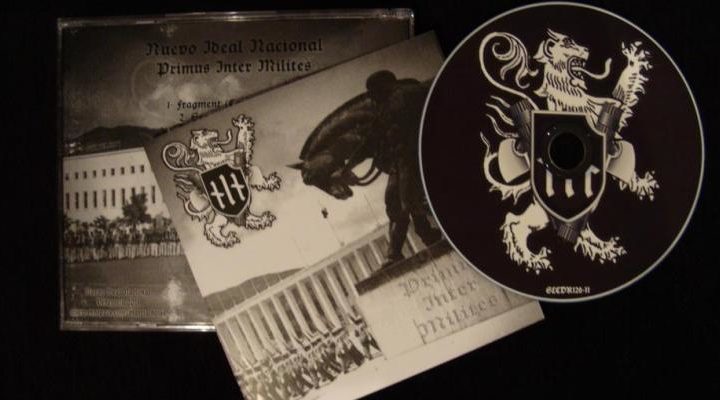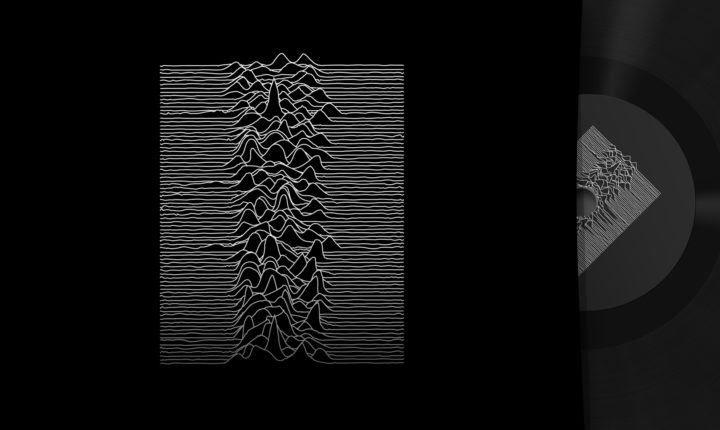
Gothic rock (alternately called goth-rock or goth) is a style of rock music that emerged from post-punk in the late 1970s. The first post-punk bands which shifted towards dark music with gothic overtones include Siouxsie and the Banshees, Joy Division, Bauhaus and the Cure. The genre itself was defined as a separate movement from post-punk due to its darker music accompanied by introspective and romantic lyrics. Gothic rock then gave rise to a broader subculture that included clubs, fashion and...

Industrial music is a genre of experimental music which draws on harsh, transgressive or provocative sounds and themes. AllMusic defines industrial music as the “most abrasive and aggressive fusion of rock and electronic music”; “initially a blend of avant-garde electronics experiments (tape music, musique concrète, white noise, synthesizers, sequencers, etc.) and punk provocation”. The term was coined in the mid-1970s with the founding of Industrial Records by members of Throbbing Gristle and Monte Cazazza. While the...
![Intelligent dance music [IDM]](https://darkwaveradio.net/wp-content/uploads/2018/11/idm-720x430.jpg)
Intelligent dance music (commonly abbreviated as IDM) is a form of electronic music originating in the early 1990s. Relative to electronic dance music IDM came to be characterized as better suited to home listening than dancing. Inspired by a variety of sources, including Detroit techno, acid house, ambient music, and breakbeat, IDM tended to rely upon individualistic experimentation rather than adhering to characteristics associated with specific genres. Prominent artists associated with the genre include Aphex Twin, μ-Ziq, the Black Dog,...

Japanoise (ジャパノイズ Japanoizu), a portmanteau of “Japanese” and “noise”, is the noise music scene of Japan. Nick Cain of The Wire identifies the “primacy of Japanese Noise artists like Merzbow, Hijokaidanand Incapacitants as one of the major developments in noise music since 1990. Certain Japanese noise artists themselves feel uncomfortable being categorized under the umbrella of “Japanese noise”, arguing that use of the term is a way of ignoring the differences between musicians who...

Martial industrial is a syncretic offshoot of industrial music characterized by noise, dark ambient atmospheres, neofolk melodies, dark wave tunes and neoclassical orchestrations as well as the incorporation of audio from military marches, historical speeches and political, apolitical or metapolitical lyrics. Unlike other post-industrial genres, martial industrial is typically interested more in a particular worldview or philosophy than pure experimentalism. History Laibach were one of the first bands to incorporate military marches in their...

Minimal wave is a broad classification of music that comprises obscure, atypical examples of genres such as new wave, stripped-down electronic or synthesizer music, synth-pop, post-punk, and coldwave. Most of the music tends to focus on electronic, pre-MIDI instrumentation and themes of sincere, rather than ironic, detachment. The terming of “minimal wave” draws some contention. Although much minimal wave is classified in the late 1970s and early 1980s and subsequently appeared on bootleg and one-off compilations, the genre...

Neofolk, also known as post-industrial or apocalyptic folk, is a form of experimental music blending elements of folk and industrial music, which emerged in punk rock circles in the 1980s. Neofolk may either be solely acoustic or combine acoustic folk instrumentation with various other sounds. History The term “neofolk” originates from esoteric music circles who started using the term in the late 20th century to describe music influenced by musicians such as Douglas Pearce (Death In June), Tony Wakeford (Sol...

New wave is a genre of rock music popular in the late 1970s and the 1980s with ties to mid-1970s punk rock. New wave moved away from blues and rock and roll sounds to create rock music (early new wave) or pop music (later) that incorporated disco, mod, and electronic music. Initially new wave was similar to punk rock, before becoming a distinct genre. It subsequently engendered subgenres and fusions, including synth-pop. New wave differs from other movements with ties...

Noise music is a category of music that is characterised by the expressive use of noise within a musical context. This type of music tends to challenge the distinction that is made in conventional musical practices between musical and non-musical sound. Noise music includes a wide range of musical styles and sound-based creative practices that feature noise as a primary aspect. Some of the music can feature acoustically or electronically generated noise, and both traditional and unconventional musical instruments. It...

Post-punk (originally called new musick) is a broad type of rock music that emerged from the punk movement of the 1970s, in which artists departed from the simplicity and traditionalism of punk rock to adopt a variety of avant-garde sensibilities. Inspired by punk’s energy and DIY ethic but determined to break from rock cliches, artists experimented diversely with sources including electronic music and black styles like dub, funk, free jazz, and disco; novel recording and production techniques; and ideas from...